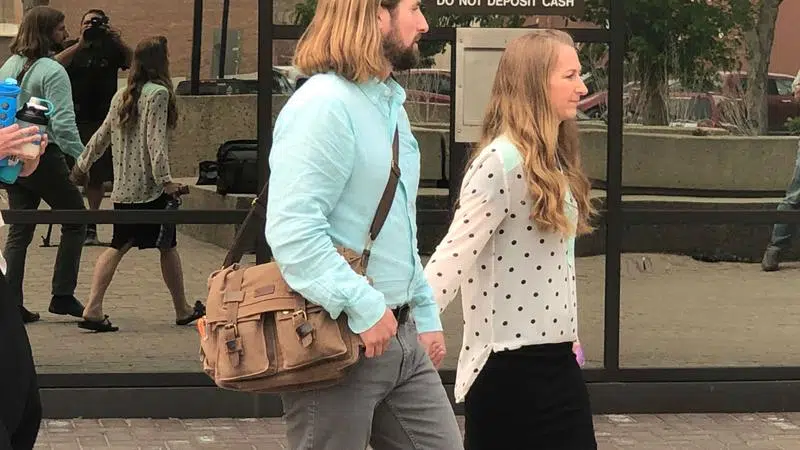
CT scan of toddler’s brain one of the “most devastating” PICU Dr. had ever seen
LETHBRIDGE – A Calgary pediatric critical care specialist testified Thursday, June 13, that a CT scan of 19-month-old Ezekiel Stephan’s brain was one of the “most devastating” she had ever seen.
Dr. Shauna Burkholder is on the stand in Court of Queen’s Bench in Lethbridge, as the Crown seeks to have her declared an expert witness in pediatric care at Calgary Children’s Hospital. While the testimony can be reported, the defence, including David Stephan and Collet Stephan’s lawyer Jason Demers, must also examine Burkholder about her qualifications. In the meantime, the comments have not yet been entered as evidence.
David and Collet Stephan have been charged with one count each of failing to provide the necessaries of life, after their toddler died of bacterial meningitis in 2012. They were initially convicted, however after subsequent appeals, the Supreme Court of Canada ruled the jury was not propertly instructed during the first trial in 2016. A new trial for the couple was ordered in May, 2018.
Burkholder told the court she not only arranged extra medical support as the child was flown by air ambulance from Lethbridge to Calgary Children’s Hospital, but she also directed his care and treated the child for several hours immediately after he was brought to the medical facility.


